

Usmanu Danfodiyo University Sokoto
The most peaceful university in nigeria, administration, admin structure.
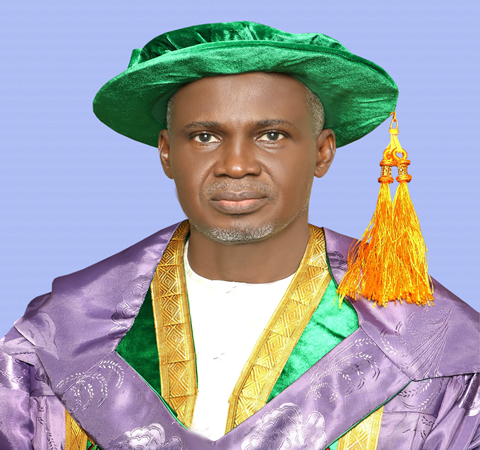
Centres/Institutes
- Manuscript Developement
- Academic Research Journal
- Academic Staff Training & Developement
- Conference Attendance
- Entrepreneurship
- Equipment Fabrication
- ICT Support
- Institution Based Research
- Physical Infrastructure/Program Upgrade
- Teaching Practice
- Tetfund Project Maintenance
- Disaster Recovery
- High Impact Intervention
- National Research Fund
- Zonal Intervention
PhD. EDUCATIONAL TECHNOLOGY
The philosophy of the Ph.D. Degree programme in Educational Technology is anchored on the belief that students should be provided advanced and up to date training in the design, development, and use of educational resources thereby enabling them to offer specialised services and provide leadership in the field of Educational Technology, in a variety of educational settings at local, national, and international levels.
The aim of the programme is to train students in general and specialised areas of Educational Technology by equipping them with knowledge, skills, and research capabilities in the field.
The objectives of the programme are to:
- Provide further educational training for teachers, researchers and supervisors in all educational settings.
- Equip students with appropriate techniques to solve problems affecting education through the use and production of technological and instructional materials.
- Expose students to the interrelatedness of instructional technology to other aspects of national development.
- Equip students with appropriate psychological skills needed for guidance and counselling in and out of the educational system.
Admission Requirements
- Five O’Level credit passes in English Language, Mathematics (where applicable) and any other three relevant subjects.
- Bachelor Degree in Educational Technology of Usmanu Danfodiyo University, Sokoto or other recognised institutions with a minimum of Second Class Lower division.
- Master Degree in Educational Technology with a GPA of not less than 4.0 on a 5 point scale or 3.00 on a 4.00 point scale.
- In addition to i-iii above, a candidate must satisfy the matriculation requirements of the Usmanu Danfodiyo University, Sokoto.
- Any other qualifications acceptable to the Board of Postgraduate School and the Senate of the Usmanu Danfodiyo University, Sokoto.
Mode of Study
The programme shall run on full-time and/or part-time bases and shall be by course work and research to be embedded in a Thesis.
Full Time: Minimum of 36 calendar months and maximum of 60 calendar months.
Part Time: Minimum of 48 calendar months and maximum of 72 calendar months.
Tuition Fees
As may be determined by the University from time to time.
Career Opportunities
- Institutions of higher learning.
- Research centres and Institutes.
- Educational Technology/Resource Centres.
- Print and Electronic Media Houses.
- Education Ministries, Parastatals, and Departments
Areas of Specialisation
- Instructional Design
- Education Media Production
- Instructional Materials Design and Production
- Computer Assisted Teaching/Electronic Learning Packages
- Instructional Resource Management
Graduation Requirements
- Register and pass a minimum of 46 credit units taught courses,made up of the following:
Courses Units
Core Courses 30
Thesis 16
2. A fulltime PhD student must present a research proposal within 18 months of registration. Where the defence was not successful during the first attempt ,a second attempt must be made before the expiration of 24 months since the student’s first registration.
3. Carry out research in relevant area of specialization and submit an acceptable Thesis which shall be defended before a panel of internal and external examiners, and shall be graded.
4. Present at least three seminars, at most one per semester.
- Department of Educational Foundations and Curriculum | Faculty of Education
- Studnet Portal

Postgraduate Programme
Department of Educational Foundations and Curriculum
Postgraduate Courses
M.ed educational administration & planning.
The M.Ed degree in Educational Administration and Planning is a programme specifically designed for upgrading and enhancing the knowledge base of graduate educational manpower in the specialized discipline of educational administration and planning. It is specifically designed for experienced administrators; particularly those who occupy planning and administrative positions in ministries of education, the schools management boards and the various institutions of learning in Nigeria and abroad. For emphasis this programme is open only to administrators with adequate experience.
Graduates of this programme are expected to accomplish the following as measured by continuous assessment, written examinations, and thesis or project evaluation:
- Master satisfactorily advanced theories, concepts, methods and principles of educational administration and planning.
- Write an acceptable thesis or research project on a major problem of policy area in educational problem of policy area in educational administration of educational planning which demonstrates competent knowledge of the problem or policy area and appropriate research methodology.
Admission Requirements
The following shall be eligible to seek admission and registration for the degree of Masters of Education in Educational Administration and Planning:
- Candidates who hold B.sc Ed degrees from Ahmadu Bello University.
- Candidates who hold B.A. or B.sc degrees plus graduate certificate in education; or diploma in education from Ahmadu Bello University.
- Graduates of other universities who hold degrees and certificates considered by the Faculty Board, Postgraduate School Board and Senate to be equivalent to (1) and (2) above.
- Ability to pass qualifying examination designed by the educational administration and planning section.
- Candidates must also meet the requirements of all other relevant general university registrations governing higher degree studies.
Graduation Requirements
- Passing written examinations of all the prescribed courses (course work).
- Passing oral examinations on the chosen area of research (thesis) at proposal defence, internal defense and external defence.
- Written report on practicum in organization of candidate's choice.
PhD. Educational Administration & Planning
The PhD programme is designed to provide a course of study for candidates pursuing an academic career and who will be teaching and conducting research in the area of educational administration and planning. Successful candidates will be expected to accomplish the following as measured by continuous assessment, written or oral examinations, and thesis evaluation.
- Master advanced, specialized theoretical and conceptual methods, methodologies of educational administration and educational planning and their application.
- Write an acceptable dissertation, which demonstrates original research and appropriate research methodology.
The following shall be eligible to seek admission and registration for the degree of Doctor of Philosophy in Educational Administration and Planning:
- Candidates who hold masters degrees in related field from Ahmadu Bello University.
- Candidates of other recognized universities who hold higher degrees considered by the Faculty Board, Postgraduate School Board, and Senate to be equivalent to (1) above.
- Candidates with other qualifications which, together with relevant experience, are deemed to be equivalent.
- Candidates must also meet the requirements of all other relevant general university registrations governing Higher degree studies.
A number of provisions are laid down and which must be fulfilled before a student can graduate:
- Must present seminar paper on the chosen area of study before the staff and student of the faculty.
- Must pass oral examinations on the chosen area of study (dissertation) through proposal defence, internal defence and external defence before a panel of distinguished academics.
The programme is expected to last for a minimum of three (3) years.
M.Ed Curriculum and Instruction
The postgraduate programmes in curriculum and instruction are in two components: M.ED and Ph.D in Curriculum and Instruction with specialization subject in bracket. Both programmes of study are registered with the Postgraduate School and have been in operation since the commencement of Postgraduate Programmes in the Department of Education. They are programmes designed to provide intensive study and research activities in curriculum design, development and evaluation as well as in high quality training of high quality staff qualified to train students at the Faculties and Colleges of Education, Polytechnics, School of Basic Studies, Preliminary Studies, etc. The products of these programmes are envisaged as Ministry Officials in charge of Curriculum Development and Inspection of the School Subjects under the administration and supervision of the Ministries of Education in Nigeria. The students so trained should be able to develop curriculum as well as competently teach a major subject of choice at the levels identified above.
Objectives of the Programme:
The M.Ed programmes in Curriculum and Instruction provide intense study and competencies in the design and teaching of specific subjects in the school curriculum. In line with the general aims stated above, the programmes have the following broad based objectives:
- Training potential researchers and scholars in the field who are prepared for intensive study of and competence in the curriculum design and teaching of a particular school subject.
- Conceptualizing and acquiring advanced knowledge of the various aspects of a subject in the school curriculum;
- Identifying and tackling the general and specific problems associated with the curriculum design, development and evaluation in Nigeria;
- Providing personnel in consonance with the current demands for qualified teachers and researchers in subjects within the school curriculum; and
- Providing graduate students with advanced level competence in the skills of teaching, curriculum development and evaluation that will be able to take up a leadership role in all educational related institution in Nigeria.
Admission Requirements:
The following shall be eligible to seek admission and registration for the degree of Masters of Education in Educational Curriculum and Instruction :
- A minimum of a good second-class lower division degree in a school related subject and education.
- A minimum of a good second-class lower division degree in a school related subject, plus Nigerian Certificate in Education, Postgraduate Diploma in Education or their equivalent.
Graduation Requirements:
Phd. curriculum and instruction.
Ph.D Programme in Curriculum and Instruction is to give the students advanced knowledge in the practice and philosophy of curriculum design, development and evaluation in general and in relation to a school related subject. Holders of this degree should be able to give guidance and leadership role in identifying, defining research concepts, take initiative in conducting research as well as equipping others to do so.
Objectives:
The students admitted into a Ph.D degree programme in Curriculum and Instruction should be able to:
- Conduct advanced scholarly research in the field of curriculum and instruction;
- Apply an intensive knowledge of curriculum and instruction to teach any school related subject at a tertiary institution;
- Approach curriculum development across educational levels from intra and inter-disciplinary perspectives of scientific, psychological, philosophical, historical and sociological dimensions;
- Proffer realistic solutions to nagging curricular socio-economic, technological, political issues;
The following shall be eligible to seek admission and registration for the degree of Doctor of Philosophy in Educational Curriculum and Instruction:
- Candidates with other qualifications which, together with relevant experience, are deemed to be equivalent
Duration: 2years
For a student to be awarded the doctorate degree in Guidance and Counselling he/she must:
- Satisfy all the requirements of the School of Postgraduate Studies.
- Take and pass all the core area of specialization and elective courses prescribed.
- Write and successfully defend the dissertation both internally and externally.
M.Ed Educational Technology
The traditional method of teaching is gradually giving way to new innovations and techniques whereby the teacher present lessons alongside different forms of media, materials and equipment. There is therefore the need to produce teachers that are competent both in the operation, maintenance as well as production of these media. This programme attempts to train teachers in those areas for better delivery using suitable methodologies.
Aim of the Programme:
The M. Ed Educational Technology degree programme is aimed at producing, upgrading and updating the competencies and skills of candidates as well as meeting the requirements of the National policy on Education in terms of teacher Education.
The following are the specific objectives of the programme:
- To provide teachers with intellectual as well as professional backgrounds adequate for the tasks and assignment in a technologically changing environment.
- To meet the high demand for qualified and professionally trained teachers in the technology of teaching and learning in various subjects.
The following shall qualify for admission into the Master of Education degree programme in Educational Technology:
- Graduates of the Ahmadu Bello University, Zaria or other recognized institutions who have obtained a B. Ed, B. A. Ed, B. Sc Ed or degrees of not less than Second Class lower.
- Candidates who hold qualifications other than the one' listed above, which are acceptable to the Board of Postgraduate School and Senate of the University.
- In addition to (a) and (b) above, a candidate must satisfy the university's requirements for matriculation.
Mode of study:
The programme will run on full-time basis. Students shall be required to conduct their programme through course work and research.
Course Duration:
The duration of study shall be a minimum of 12 calendar months and a maximum of 48 calendar months for full-time and a minimum of 24 calendar months and a maximum of 72 calendar months
Career opportunities:
Holders of Masters of Education degree in Educational Technology have opportunities in educational institutions, research centres, educational programme design, curriculum implementation etc.
Areas of specialisation:
Students can specialize in the following areas:
- Instructional Design
- Education Media Production
- Instructional Materials Design
- Computer Assisted Teaching/Learning Packages
- Instructional Resource Management
Students shall be required to register and pass 24 units of taught courses. Also, they are required to write dissertation to be defended before a panel of Examiners in accordance with the existing postgraduate school regulations of Ahmadu Bello University, Zaria.
PhD. Educational Technology
The need to produce high level manpower in Educational Technology cannot be over emphasized. This is because the challenges that Information and Communication Technology has brought into teaching and learning are so enormous that teacher preparation has to be strengthened and regenerated to make them cope with those challenges. The possession of nigh level knowledge in Educational Technology is a step in this direction. This programme therefore is designed with a view of producing professionals in the field that can guide, inspire, upgrade and direct others towards professionalism in the area of Educational Technology.
- To provide further educational training for teachers, researchers and supervisors in all educational settings.
- To equip students with appropriate techniques to solve problems affecting education through the use and production of technological and instructional materials.
- To expose students to the interrelatedness of instructional technology to other aspects of national development.
- To equip students with appropriate psychological skills needed for guidance and counselling in and out of the educational system.
TThe following shall qualify for admission into the Doctor of Philosophy degree programme in Educational Technology:
- Graduates of the Ahmadu Bello University, Zaria or other recognized institutions who have obtained a Masters Degree in Educational Technology with a GPA of not less than 4.0 on a 5 point scale or not less than 3.0 on a 4 point scale.
- Graduates of Ahmadu Bello University, Zaria who has been upgraded to PhD through Master of Philosophy Programme.
- In addition to (1), (2) and (3) above, a candidate must satisfy the university 's requirements for matriculation.
The programme will run on full-time and part-time basis by research.
TThe duration of study shall be a minimum of 24 and a maximum of 60 calendar months for full-time.
Holders of Doctor of Philosophy in Educational Technology have opportunities in educational institutions, research centres, educational programme design, curriculum implementation etc.
Postgraduate Diploma in Education Programme (PGDE)
Duration: 1year

23 Digitization of Education in Nigeria: A Path to Technological Advancement
Onyia, Mary N. (Ph.D.)
Today, more than ever, the role of educational technology in teaching and learning is of great importance because of the use of information and communication technology. With the help of various applications for distance education, the internet, teachers and students themselves, they see the advantage technology in education. Aware of this, the Federal Government in its statement on the National Policy on Information and Communication Technology (ICT) in education identified the critical role of ICT, towards the attainment of the National Vision within the context of the constitution of the Federal Republic of Nigeria, the National Policy on Education, Ministerial Strategic Plan: Education for Change and Sustainable Development Goals (SDGs). But since independence, Nigeria has had an encompassing quantitative education with minimal or no impact on technological advancement. Despite the constant previous reforms in the sector to make it more impactful, problems persisted , just as panaceas abound , but the questions remained, hence the clamour for digitization of education in Nigeria for technological advancement.
Keywords: Digitization, Education and Technological Advancement
Modern teaching materials are very crucial and most preferred in the digitalize world. A modern education system uses technology to impart knowledge. Digitization of education system is an opportunity to develop a cognitive resource-based mechanism in learners and improve the skills, lifelong learning and continuous education. Digitization produces information that can be conveyed in many different methods. It brings about democracy of knowledge where education becomes a collaborative and self-driven enterprise. Nowadays, there are tools available to transform learning from an academic exercise to an engaging experience gratification and technological gains.
Digitization is the trending term, describing the 21st century in the most precise manner as possible. We are in the era where unprecedented ideas are unfolding in our education sector and creating the advancement that can’t be matched by lagging behind in terms of technology.
CONCEPT OF DIGITIZATION
Witten and David (2003) defines digitization as the process of taking traditional learning materials that are in book form and papers and converting them to the electronic form where they can be stored and manipulated by a computer. Kannappanava; Rajamkanta and Tandur (2010) stated that digitization refers to the conversion of materials created in another format into an electronic form; this definition excludes materials that were initially created digitally, such as email communication. Similarly, Jagboro, Omotayo and Aboyade (2012) defined digitization as all the steps involved in the process of making collections of historical and other materials available online. Pandey and Misra (2014) describe digitization as the course of converting analog information to a digital format.
Digitization implies the creation of digital surrogates for an original copy or physical object. Digitization encourages open access to resources such as electronic theses. Ding, (2000) highlights the advantages of digitization as follows:
- Digitization means no new buildings are required; improvement in information sharing and redundancy of collections reduced.
- Digitization leads to the development of Internet in digitalized based institutions
- Digital materials can be transmitted, sorted and retrieved easily and quickly.
- It is cheaper to access electronic information than its print counterpart when storing files in an electronic device with compatible facilities and equipment.
- Digital texts can be linked, made interactively; and improves the retrieval of more information.
Also, clients do not have to travel to libraries that have the hard copies of library resources before they can access and use such materials (Fabunmi, Paris, and Fabunmi, 2009). Pandey and Misra (2014) mention that digital projects allow users to search for groups rapidly and comprehensively from anywhere at any time; several users can access the same material the same time without a barrier. In contributing to this, Urhiewhu and Daniel (2015), opines that in digitizing library resources, everyone will have access to information instead of to a group of researchers. The authors also stated that digitization makes the invisible to be visible.
Other benefits as summarized by Akpan-Atata and Enyene (2014) are as follows:
- Universal Access – people from all over the world, gained access to the same information as long as an internet connection is available.
- Capacity – in the traditional libraries, there are limited storage spaces while digital books have the possibilities to reserve much more information, simply because digital information requires very little physical space to contain them.
- Cost – the cost of sustaining a digital learning is lower than that of running a traditional learning.
- Enhanced searching methods through different search engines and manipulation of information.
- Improved facilities for information sharing.
- Access to information is made possible in a short time.
- Improved collaboration with other information institutions and centers, chances to form consortia where they can pull their resources together and get a real bargain of scale to acquire learning software.
The benefits of digitization cannot be over emphasized. Digitization has transformed scholarship and brought with it tremendous changes and easy access to resources which were formerly restricted. Carr (2000), observed that in academic institutions, digital institutional resources such as theses, research papers, manuscripts, images or specialized monographs are of very high value. To retain the original copies of rare publications emanating from institutions, digitization becomes the best option. Academic institutions are leveraging the benefits of digitization to preserve their original publications while promoting surrogate copies.
Concept of Technological Advancement
Technological advancement is the generation of information or the discovery of knowledge that advances the understanding of technology. In other words, a technological advancement advances the understanding of technology. (Johnson, 2012).
It is also an attempt at extending or further understanding the underlying science used to develop current materials, devices, products or processes.
Digitization of Education and Technological Advancement : An Overview
It is very worthy to note that we’re living in a technology-driven world. Since the internet exploded onto the scene in the ’80s and ’90s, became accessible to the average Nigerian student in the past decade, and eventually began to fit into our pocket with the development of smart phones, it is safe to say technology is on an upward trajectory, and it shows no sign of slowing down anytime soon.
Today, the internet dominates many aspects of our life. We’re so used to it that we don’t even think about all the areas it touches. It helps us communicate effectively in the academic institutions. We access our entertainment online. Whenever we have any question, from the most mundane to the most complicated, we ask the internet. (Asogwa, B.E. 2011).
There’s one facet of our life, however, where we might not often think about the effects of technology, and that’s the realm of education. This study examines how technology has found its way into the halls of schools across the country and around the globe, and all the ways technology has impacted in Nigerian Education system.
In many ways, education has not eminently improved in Nigeria. The traditional system of education is still in invoke. A teacher instructs a student or a group of students, who use their studies to learn to become members of society. A few will then go on to become teachers themselves, and pass their knowledge along to the next generation. Technology has come a long way in helping students conduct research, participate in debates and projects, and even gain hands-on experience that will help them better understand and navigate the world and their future careers. Some of the major advantages of digitizing of education by Ding, C.M (2000), include;
Greater Accessibility
According to Pandy, P, and Misra, R.(2014), students and teachers needed to be physically present in the same location for learning to take place. But recently with the introduction of technology in education, it allows for instant and convenient communication over great distances at the click of a button. Technology has impacted on education to the extent that there is a possibility of online degrees . Established traditional schools in Nigeria now offer some of their courses online, while other schools have sprung up that operate entirely online, with students and teachers never once meeting face to face. In primary and secondary schools, this same technology allows for cyber-schooling, where children can complete their work from the comfort and convenience of home.
Online schooling such as these examples has helped immensely in breaking down geographic barriers that have long prevented many students from reaching certain educational institutions. And this has in turn contributed significantly in the general advancement of technology in Nigeria.
Increased Flexibility
The idea of flexibility due to the internet goes hand in hand with improved accessibility. Online classes have freed students from having to attend school at specified times, something that is often impossible due to work or family responsibilities. Instead, course materials are available online, and students have the freedom to study and complete classwork whenever their schedule permits.
Technology has opened the doors of education to many who might otherwise be unable to attend a traditional school. Anyone working full-time, for instance, will now be able to continue their job while getting an education. Parents with young children can also find opportunities to attend school (Unsworth, J. 2004).
Differing Interactions between Teachers and Students
With the development of online educational programs, the interactions between teachers and students have undergone a fundamental shift. There are advocates on both sides of this matter, with some saying this change is for the better and others saying it is for the worse. Perhaps the most helpful position to take is that this change is neither wholly negative nor entirely positive, and instead has both merit and demerit.
For example, because this interaction is online, class time is no longer students’ only opportunity to ask their teachers questions and request information. Instead, they can take advantage of emails, instant messaging, and texting to ask their teachers questions anytime, rather than having to wait for the next class, when the question is no longer fresh in their mind.
Advent of Online Testing
Along with online education comes the advent of online testing, which is hugely beneficial for a whole host of reasons. Foremost among those reasons is the fact that online testing is impartial and entirely fair. If a machine is grading the test and automatically correcting wrong answers, it’s impossible to show any signs of bias. Additionally, online testing can be an excellent solution for those who suffer from test anxiety and are distressed by taking tests in a room with a group of other people. Finally, it’s also much better for those with busy schedules, who may struggle to be at a testing center at a particular time.
Online testing isn’t without drawbacks, however. Most notably, it is only effective for multiple-choice tests, not for essay or short answer questions. Students can still take essay-based tests online, but a human teacher will need to evaluate.
Improved Ability to Meet Special Needs
In the past, a rigid classroom structure defined the world of academia. Each student had the same experience, no matter their differing needs or abilities. While some students could function well in this environment, others had unmet needs.
Technology improves a school’s abilities to meet the needs of all types of students. Now, students with hearing, speaking or seeing impairments, or those who are largely housebound, can still receive a quality education. Technological advancements can also meet the needs of students with intellectual, social, or developmental disabilities. No matter what a student’s unique needs may be, technology affects education for the better by improving our ability to create learning environments that work for all.
Availability of Online Learning Content
Learning used to take place exclusively in a classroom setting. Educational tools were either books or officially produced videos. One of the ways the Internet has changed education is by allowing anyone to share their knowledge with the world by publishing an educational blog post, e-book, or YouTube video.
The far-reaching benefit that comes out of this is that it makes it easier for anyone to learn.
Adaptability and Personalization
Educational spaces are becoming increasingly aware of the fact that what helps one student learn may be virtually useless to someone else, and what makes no sense to one student may be the only thing that clicks with another. Everyone’s brain works differently, and everyone has a unique learning style — yet, for many years, all those students read from the same textbook. With the introduction of technology in education, students can benefit from having a range of tools and learning technologies at their fingertips.
Digitization of education is a laudable project that encompasses the application of a wide spectrum of practices, including blended and virtual learning. Nevertheless, some hurdles impede its smooth operations especially in Nigeria; According to Asogwa, B.E. (2011), some of the challenges include;
Inadequate funding. Funding for the purchase and maintenance of modern and state-of–the–art digital equipment by the government remains a major constraint.
Erratic power supply
It is very unrealizable for computerization and digitization to take effect in an environment of epileptic power supply. The issue of power has become a national calamity. Thus it has to be given priority by any library aspiring to attain global visibility. Hence, all the institutions in Nigeria only depend on a generator for its power supply, and most often there is no light due to lack of diesel or generator breakdown which often hinders the digitization process.
Lack of Modern Infrastructure
Infrastructural facilities in most Nigerian academic institution are in a state of disrepair. Yaya and Adeeko (2016) observed that ICT department in these institutions lack modern computer systems; even the few available systems are being infected with a virus which makes them unfit for the digitization project.
Lack of skilled staff
Many academic staff lacks the basic computer training, not to mention specialized training required for digitization (Jagboro, Omotayo, and Aboyade, 2012). There is a need for continuous training to build academic staff capacity in equipment maintenance and software management. Also, digitization is a complex process which requires specialized skills. However, a good number of staff who may be involved in the digitization process in Nigerian academic institutions may not skilled as they do not possess adequate knowledge or competence in the handling of digitization equipment.
Digitization has no doubt changed our education system, but we cannot say that it has diminished the value of our old time classroom learning. Neither do we want something so priceless to turn into dust. The best part about the digitization of education in the 21st century is that it is combined with the aspects of both; classroom learning and online learning methods. Walking hand in hand both acts as a support system to each other, this gives a stronghold to our modern students. Digitization in education has also proved to be the right method for saving resources. Online examination platforms have restricted the frivolous usage of paper, directly confining the cutting down of trees. This way the digitization of education industry in the 21st century proves to be a boom to our societal technological advancement.
Anunobi, C.V, and Onyebinama, C.O.(2011). ETD initiatives in Federal University of Technology Owerri (FUTO): successes, challenges, and prospects. Proceedings of the 14th international symposium on Electronic Theses and Dissertations, 13-17 September 2011, Cape Town South Africa. South Africa National Research Foundation.
Asogwa, B.E. (2011). Digitization of archival collections in Africa for scholarship communication: issues, strategies, and challenges. Library Philosophy and Practice. Retrieved from http://www.webpages.uidaho.edu/~mbolin/asogwa.htm
Carr, R. (2000). The future of libraries and collections. Keynote address to the Fiesole Collection Development retreat, Oxford, 20 July 2010.
Ding, C.M. (2000).Access to digital information: some breakthrough and obstacles. Journal of Librarianship and Information Science 32(1)
Fabunmi, B.A; Paris, M; and Fabunmi, M.(2009).Digitization of library resources: challenges and implications for policy and planning. International Journal of Africa and African American studies 5(2): 24-36
Jagboro, K.O; Omotayo, B.O and Aboyade, W.A. (2012). Digitization of library collection in developing countries: the Hezekiah Oluwasanmi LibraryExperience. Library Philosophy and Practice: 1-11
Johnson, (2012). Importance of digitization of library materials. SRELS Journal of information management 47(1): 61-70 Kumar, V.R. (2016). A study of challenges and opportunities for academic libraries in migrating to e-resources. International Journal of Digital Library Services 6(3)85-94. Retrieved from http://www.ijodls.in/uploads/3/6/0/3/3603729/85-94.pdf
Yaya and Adeeko (2016), Globalization and ICT in Academic Libraries in Nigeria: The Way Forward. Library Philosophy and Practice,
Pandy, P, and Misra, R.(2014). Digitization of library materials in academic libraries: issues and challenges. Journal of industrial and intelligent
information 2(2): 136-141. Retrieved from http://www.jiii.org/uploadfile/2014/0113/20140113034520805.pdf
Stefano, P. De. (2001). Selection for digital conversion in academic libraries. College and Research Libraries 62(11):58-69.
Unsworth, J. (2004). The value of digitization of libraries and humanities scholarship: An Innodata Isogen symposium Newberry library, May 17, 2004.
2021 Association for Digital Education and Communications Technology Conference Proceedings Copyright © by Onyia, Mary N. (Ph.D.). All Rights Reserved.
Share This Book
Faculty of Education
M.ed admin and planning.
The aim of the master’s program in Educational Administration and Planning is to become a center of excellence in educational administration, educational policy development and school management by promoting advanced level of teaching and research. Within this framework the program aims:
To build students’ knowledge and understanding in the field of educational administration and planning, school leadership and management, educational policy development and some other allied disciplines,
To build the capacity of the students to design and carry out research in various domains of educational administration and planning and allied disciplines
The minimum duration of M. ED in Educational Admin & Planning is three semesters and a maximum of six semesters. The program accepts students with a good honors degree in education and specialized areas from recognized universities. Students have to successfully complete all the compulsory courses, some of which are research, statistics and practicum, two elective courses and one thesis preparation/ project course. Students who complete the coursework carry out a research as their masters’ thesis, and graduate from the program by successfully defending it.
Admission Requirements
Entry Requirements:
Applicants for M. Ed Educational Administration and Planning Degree will be required to have either or both of the following:
- a good honour degree in Education (Arts, Languages, Sciences, Social Sciences) and specialized areas, such as Educational Management, Guidance & Counselling, Library and Archival Studies, Adult Education, Special Education and so on.
- a good honour degree in pure Arts, Languages, Sciences or Social Sciences plus a Postgraduate Diploma in Education (PGDE or PGTED) or NCE;
- All qualifications must be from recognised Universities.
Graduation Requirements
The minimum duration of M. ED in Educational Admin & Planning is three semesters and a maximum of six semesters. Students who complete the coursework carry out a research as their masters’ thesis, and graduate from the program by successfully defending it.
A Minimum of 15 Courses (consisting of all the 13 Compulsory courses and 2 Elective courses); Total Maximum Credit Units = 37 and Minimum of 30 Credit units.
The M.Ed Admin & Planning programme offers the following courses:
Thank you for visiting nature.com. You are using a browser version with limited support for CSS. To obtain the best experience, we recommend you use a more up to date browser (or turn off compatibility mode in Internet Explorer). In the meantime, to ensure continued support, we are displaying the site without styles and JavaScript.
- View all journals
- Explore content
- About the journal
- Publish with us
- Sign up for alerts
- CAREER COLUMN
- 02 July 2019
My nine steps to success as a PhD student in Nigeria
- Iyobosa Uwadiae 0
Iyobosa Uwadiae is a medical physicist at University College Hospital, Ibadan, Nigeria.
You can also search for this author in PubMed Google Scholar
In 2014, I left the United Kingdom after earning a master’s degree in medical physics at the University of Aberdeen, followed by clinical training at the Royal Marsden Hospital hospital in Sutton, London. When I returned to Nigeria, I enrolled in a PhD programme, also in medical physics, at the Obafemi Awolowo University in Ile-Ife.
Access options
Access Nature and 54 other Nature Portfolio journals
Get Nature+, our best-value online-access subscription
24,99 € / 30 days
cancel any time
Subscribe to this journal
Receive 51 print issues and online access
185,98 € per year
only 3,65 € per issue
Rent or buy this article
Prices vary by article type
Prices may be subject to local taxes which are calculated during checkout
doi: https://doi.org/10.1038/d41586-019-02072-y
Related Articles

- Institutions

US halts funding to controversial virus-hunting group: what researchers think
News 16 MAY 24

A DARPA-like agency could boost EU innovation — but cannot come at the expense of existing schemes
Editorial 14 MAY 24

How I fled bombed Aleppo to continue my career in science
Career Feature 08 MAY 24

Dozens of Brazilian universities hit by strikes over academic wages
News 08 MAY 24

France’s research mega-campus faces leadership crisis
News 03 MAY 24

US National Academies report outlines barriers and solutions for scientist carers
Career News 02 MAY 24

I’m worried I’ve been contacted by a predatory publisher — how do I find out?
Career Feature 15 MAY 24

Illuminating ‘the ugly side of science’: fresh incentives for reporting negative results
Faculty Positions& Postdoctoral Research Fellow, School of Optical and Electronic Information, HUST
Job Opportunities: Leading talents, young talents, overseas outstanding young scholars, postdoctoral researchers.
Wuhan, Hubei, China
School of Optical and Electronic Information, Huazhong University of Science and Technology
Postdoc in CRISPR Meta-Analytics and AI for Therapeutic Target Discovery and Priotisation (OT Grant)
APPLICATION CLOSING DATE: 14/06/2024 Human Technopole (HT) is a new interdisciplinary life science research institute created and supported by the...
Human Technopole
Research Associate - Metabolism
Houston, Texas (US)
Baylor College of Medicine (BCM)
Postdoc Fellowships
Train with world-renowned cancer researchers at NIH? Consider joining the Center for Cancer Research (CCR) at the National Cancer Institute
Bethesda, Maryland
NIH National Cancer Institute (NCI)
Faculty Recruitment, Westlake University School of Medicine
Faculty positions are open at four distinct ranks: Assistant Professor, Associate Professor, Full Professor, and Chair Professor.
Hangzhou, Zhejiang, China
Westlake University
Sign up for the Nature Briefing newsletter — what matters in science, free to your inbox daily.
Quick links
- Explore articles by subject
- Guide to authors
- Editorial policies
- NOUN Admission Form
- NOUN Courses
- NOUN Guides
- NOUN School Fees
- NOUN Updates
- Cookies Policy
- Privacy Policy
- Terms of Use

NOUN Postgraduate Registrable Courses (Masters, PGD & PhD)
NOUN Postgraduate Registrable Courses (Masters, PGD & PhD) . Discover a comprehensive guide to NOUN’s postgraduate programs, eligibility requirements, application process, and fees. Pursue your academic aspirations and elevate your career prospects with NOUN’s flexible and diverse postgraduate offerings.
The National Open University of Nigeria (NOUN) stands as a beacon of accessible and high-quality education, offering a plethora of postgraduate programs tailored to diverse academic interests and career goals. NOUN Postgraduate Registrable Courses provide a gateway to advanced knowledge, professional development, and personal fulfilment.
Whether you seek to specialize in a particular field, enhance your leadership skills, or embark on a research journey, NOUN’s postgraduate programs offer the flexibility and rigour to meet your aspirations. This comprehensive guide delves into the world of NOUN Postgraduate Registrable Courses, equipping you with the knowledge and resources to make informed decisions about your academic journey.
READ ALSO: NOUN Postgraduate Admission Form: Requirements & Admission Process .
Table of Contents
Exploring NOUN’s Postgraduate Programs:
NOUN offers a diverse array of postgraduate programs across various disciplines, catering to a wide range of academic interests and professional ambitions. These programs are designed to provide students with the necessary knowledge, skills, and expertise to excel in their chosen fields.
Some of the key postgraduate program categories include:
- Master’s Degree Programs: These programs typically require a bachelor’s degree for entry and provide students with in-depth knowledge and specialized skills in their chosen field.
- Doctorate of Philosophy (PhD) Programs: These programs are designed for individuals seeking to pursue advanced research and contribute to the body of knowledge in their respective fields.
Related: NOUN Online Verification Procedure for Newly Admitted Students .
NOUN Postgraduate Registrable Courses (Masters, PGD & PhD) .
NOUN’s postgraduate registrable courses span a wide spectrum of disciplines, encompassing:
- Agricultural Science: Delve into the intricacies of agriculture, exploring crop production, animal science, and agricultural economics.
- Arts: Engage with the creative and expressive domains of art, literature, and performing arts.
- Education: Equip yourself with the tools and knowledge to shape the future of education, encompassing educational psychology, curriculum development, and educational leadership.
- Health Science: Gain insights into the complexities of human health, exploring public health, nursing, and environmental health.
- Law: Immerse yourself in the intricate world of law, delving into criminal law, constitutional law, and international law.
- Management Sciences: Master the art of business and management, exploring finance, marketing, and human resource management.
- Science: Unravel the mysteries of the natural world, exploring physics, chemistry, and biology.
- Social Sciences: Explore the dynamics of human society, encompassing sociology, psychology, and political science.
Related: NOUN GST302 Business Plan Sample & How to Write It .
==> Adventist College of Nursing Jengre Admission Form .
NOUN Postgraduate Fees Payment Schedule.
Project fees.
- Undergraduates = N15,000.00
- Post-Graduate Diploma – N25,000.00
- Masters = N40,000.00
- Undergraduates = N1,000.00 per course
- Postgraduates (PGD and Masters) = N2,000.00 per course
Related: NOUN Admission Form 2024/2025 Registration Procedure for New Students .
List of NOUN School of Postgraduate Studies Registrable Courses .
Embark on your academic journey:.
Upon successful admission, embark on your enriching academic journey with NOUN’s postgraduate programs. Engage with knowledgeable faculty, participate in stimulating discussions, and delve into the depths of your chosen field.
Conclusion: NOUN Postgraduate Registrable Courses .
NOUN Postgraduate Registrable Courses offer a transformative academic experience, empowering individuals to pursue their aspirations and enhance their professional horizons. With its diverse program offerings, flexible learning structure, and affordable fees, NOUN provides a gateway to advanced knowledge and personal fulfilment. Embark on your academic journey with NOUN and discover the world of possibilities that await you.
Related Posts:
- Al-Muhibbah Open University Courses & Requirements
- Top 10 Best Online Universities in Nigeria
NOUN Masters Courses 2024/2025 (+PGD, PhD)
- NOUN Courses for Undergraduate & Postgraduate
- Everything You Should Know About Miva Open…
- Top 10 Open Universities in Nigeria with Affordable…
- New Year Resolutions to Inspire You in 2024
- NOUN Study Centres List, Addresses & Contact Details
- NOUN Transcript & Statement of Result Application…
More NOUNNG Updates
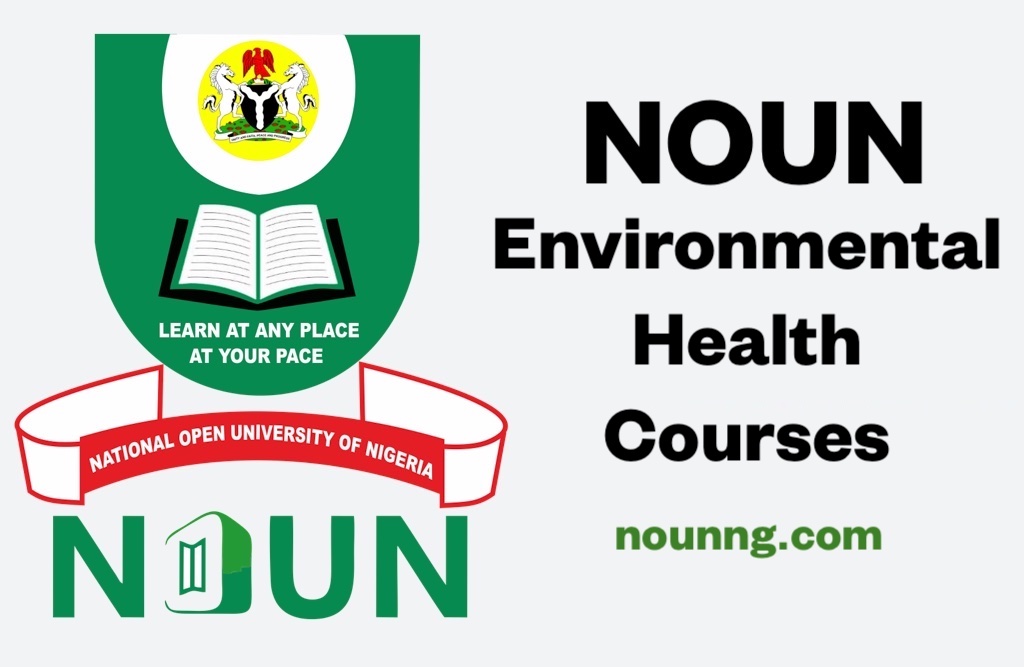
NOUN B.Sc. Environmental Health Courses & Requirements
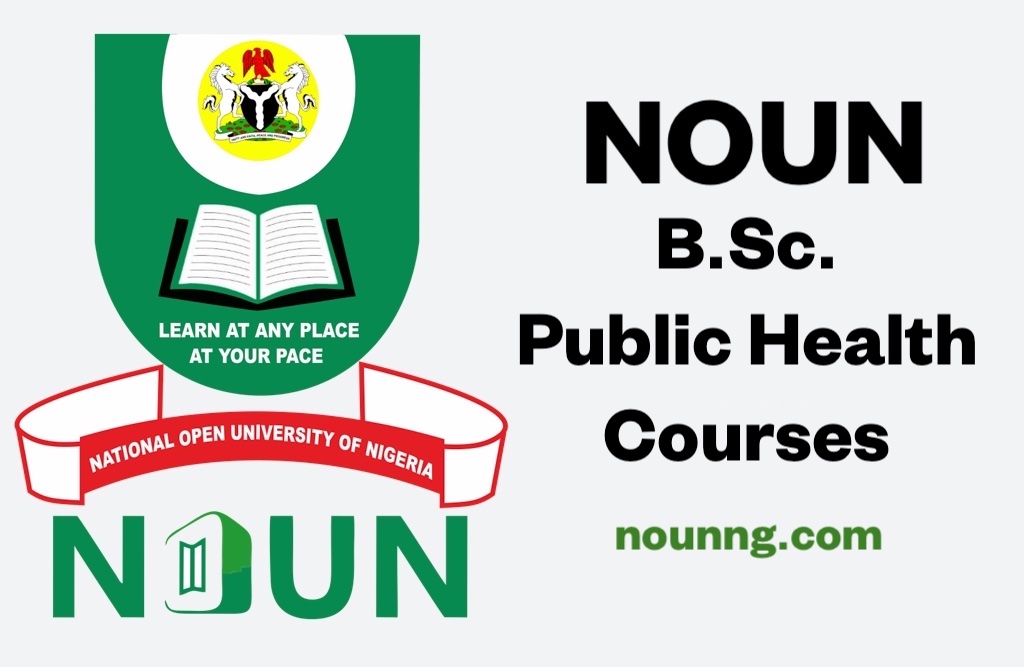
NOUN B.Sc. Public Health Courses & Admission Requirements
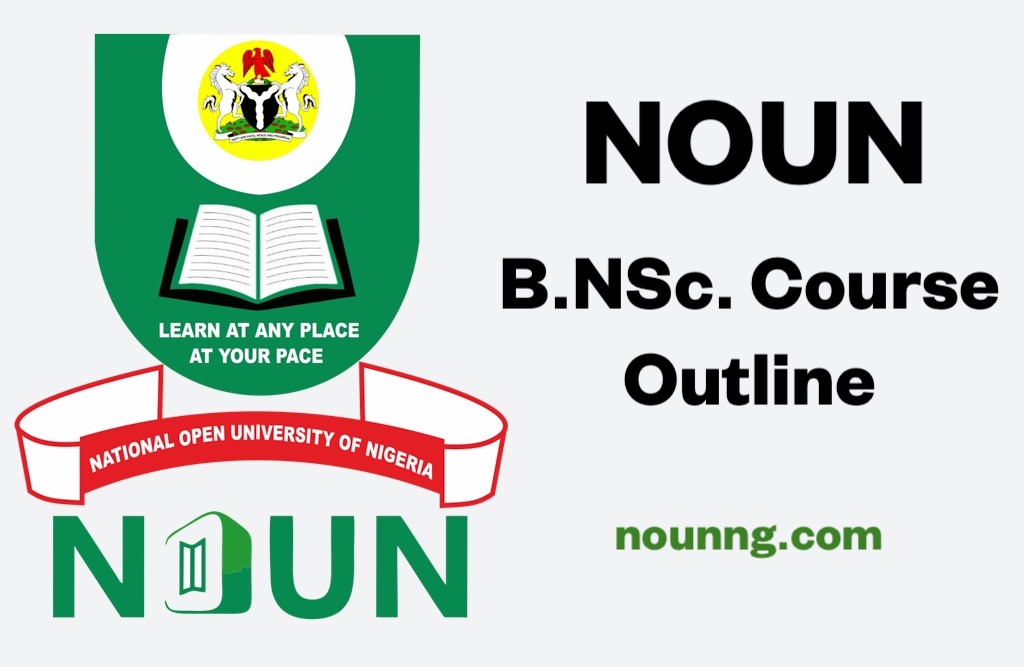
NOUN Bachelor of Nursing Science Course Outline
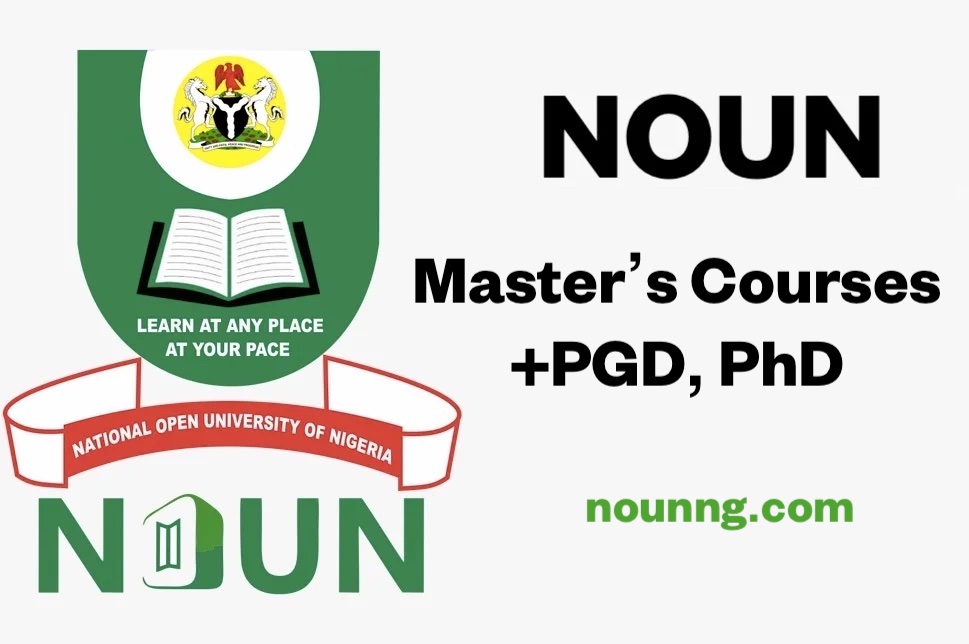
NOUN Non-examinable Courses: Everything You Need to Know
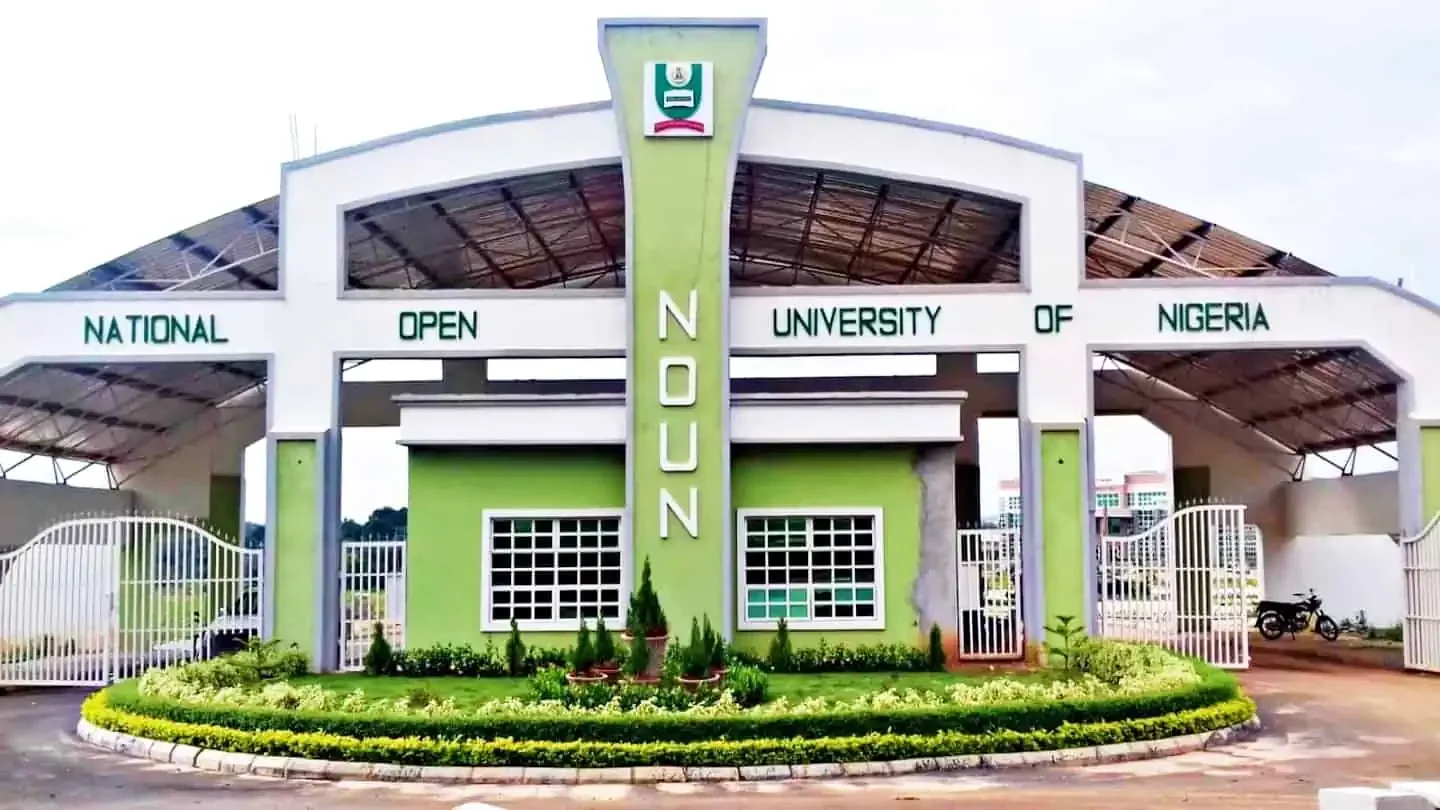

NOUN Courses for Undergraduate & Postgraduate
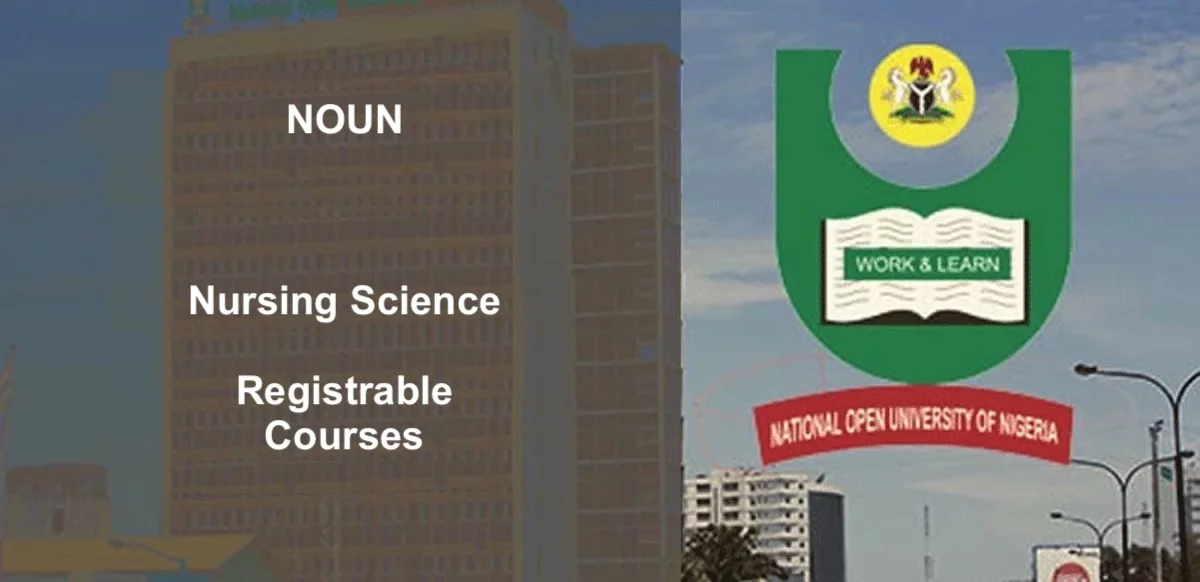
NOUN Nursing Science Registrable Courses 2024 (First Semester)

NOUN Nursing Courses and School Fees Outline
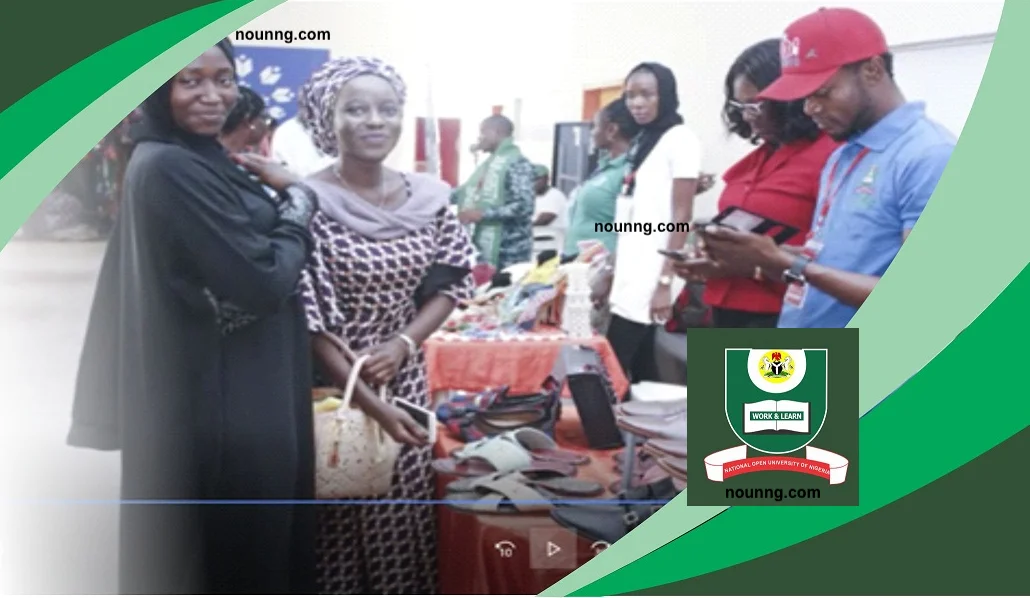
List of NOUN ACETEL Programmes/Courses
Save my name, email, and website in this browser for the next time I comment.
Type above and press Enter to search. Press Esc to cancel.
Sign In or Register
Welcome back.
Login to your account below.
- Find Programs
- Edo University - Iyamho
- Bowen University
- Coal City University
- Covenant University
- University of Lagos
- Babcock University
- Obafemi Awolowo University
- University of Ilorin
- American University of Nigeria
- Nnamdi Azikiwe University
- Achievers University
- National Open University of Nigeria
- University of Uyo
- Accommodation
- Study in Nigeria
- COVID 19 Update for studying in Nigeria
- Nigeria Visa Requirements
- Cost of Living
- List of universities in Nigeria
- Application Requirements
- Student Jobs
- Student Life
- Step-by-step Admission Process
- Documents students should carry to Nigeria
- Lifestyle and Culture
- Scholarships
- Structure of High Schools in USA
- Nigeria High School Ranking
- Nigeria High School Structure
- Nigeria High School Application Requirements
- Nigeria Primary School Rankings
- Nigeria Primary School Structure
- Nigeria Primary School Application Requirements
- Nigeria Pre School Ranking
- Nigeria Pre School Structure
- Nigeria Pre school Application Requirements
- My Applications
PhD in Educational Technology National Open University of Nigeria Lagos
Program details, minimum cost of living, requirements.
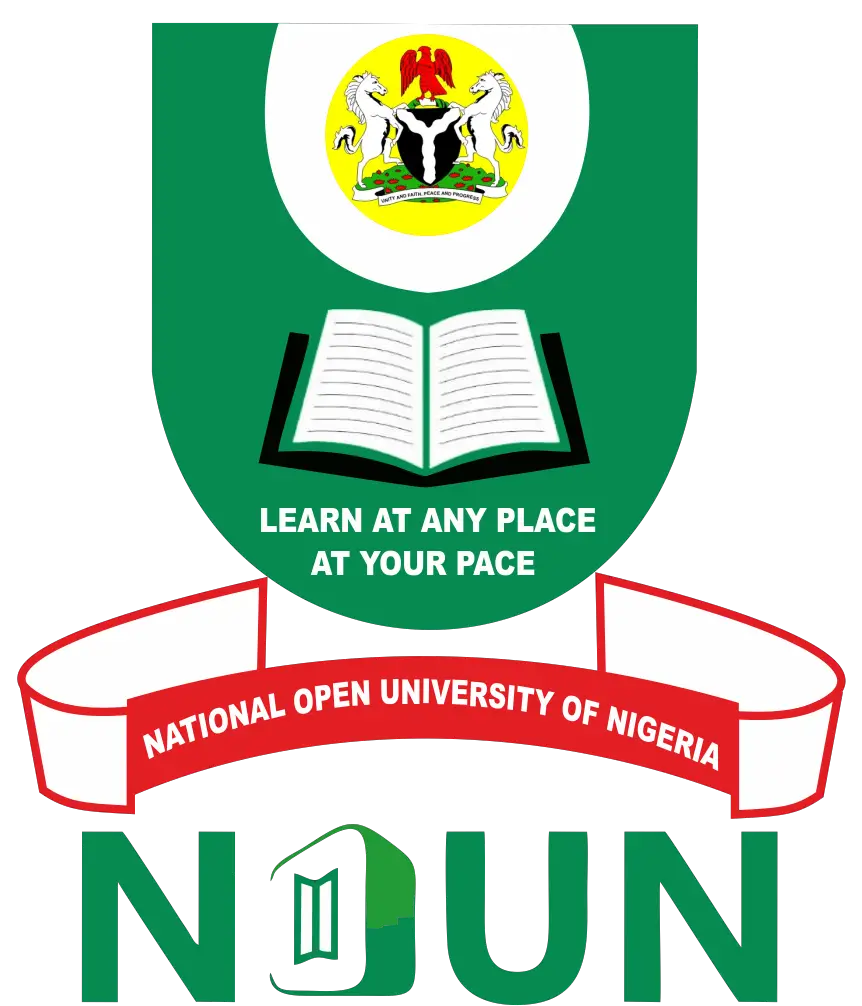
About National Open University of Nigeria:
The National Open University of Nigeria is a Federal Open and Distance Learning institution, the first of its kind in the West African sub-region. It is Nigeria's largest tertiary institution in terms of student number and is popularly referred to as NOUN. NOUN aims to develop in five major areas. They are to:
- Enhance student enrolment in programmes being offered in the university
- Create demand-driven academic programmes relevant to the needs of the society
- Create linkages with other universities and industrial concerns
- Deploy the use of innovative technologies in the delivery of her operational services
About Nigeria:
RocApply invites you to study in Nigeria, Africa’s largest country in population. Boasting of being one of the most urbanised countries in the continent, Nigeria is one of the places non-African people think of whenever Africa is mentioned. It comes as no doubt that due to this, favourable advantage, Nigeria is one of the most visited places in Africa both for tourist reasons and also for migration purposes. Known as one of the major powers in the continent and the world at large, Nigeria is a coveted place to visit and experience the diversified culture of the country. International students will get the opportunity to gain a more global mindset about the world than when studying in their home country.
About the city:
Lagos, Nigeria’s largest city, sprawls inland from the Gulf of Guinea across Lagos Lagoon. Victoria Island, the financial center of the metropolis, is known for its beach resorts, boutiques and nightlife. To the north, Lagos Island is home to the National Museum Lagos, displaying cultural artifacts and craftworks. Nearby is Freedom Park, once a colonial-era prison and now a major venue for concerts and public events.
LATEST POSTS:
- GE Awards 23
- Future of EdTech
Select Page
January 5, 2021

Voice and Opinion
Uzodinma joan ugonwanyi takes a look at the current state of edtech in nigeria and provides a list of benefits and recommendations..

Education is the bedrock of development in any country. Nigeria is a developing country with a well-established education sector. Its budgetary allocation to education in 2020 was 6.7% and is usually within a yearly percentage that is well below the estimated allocation for Education by the United Nations Educational Scientific and Cultural Organization UNESCO (27%). [1]
Education Technology or EdTech is the combined use of computer hardware, software and educational theory and practice to facilitate learning. It creates, uses and manages technological processes and educational resources to help improve user academic performance. [2] There is an evolvement of new technological tools which can be integrated in schools for efficient and effective school management and this is a trend every country should adopt in order to achieve their educational goals. How well does Nigeria’s educational system maximize such trends? Let’s dive into understanding the state of EdTech in Nigeria and to some extent, the benefits of EdTech and recommendations.
EdTech in Nigeria
Educational technology is essential in school management so as to achieve efficiency and effectiveness. The world has evolved from more traditional methods of learning to digital patterns and every school administrator or educator is advised to adapt to such digital methodologies in order to be more productive. This will foster accuracy, accountability, development and the achievement of school goals.
Education in Nigeria is faced with a lot of problems, these include; poor funding, poor infrastructure, inadequate classrooms, a lack of teaching aids (projectors, computers, laboratories and libraries), a lack of quality teachers and a polluted learning environment, to mention but a few of the challenges facing the education system in Nigeria. [3]
The use of EdTech in Nigeria is completely discouraging, especially for government owned schools which hardly learn in a conducive environment, let alone being able to provide tech gadgets that could enhance teaching and learning. Some private schools are the leading pioneers of EdTech in Nigeria, especially for administrators that understand how paramount it is to yield a desirable output. These schools can be found in the biggest cities in Nigeria, such as Abuja, Lagos and Port Harcourt. On the other hand, individuals who in their own light are EdTech enthusiasts have established startups that aim to help learners to digitally acquire any desired field of study. Using this acquired knowledge they can solve problems, learn unique tech skills at a young age and close gaps at school. This is because the world is a global village and technology is the future.
RECOMMENDED: https://global-edtech.com/edtech-definitions-products-and-trends/
Here follows some Nigerian EdTech companies that have leveraged technology to make education seamless and accessible to millions of Nigerians:
uLesson : This EdTech company aims to provide adaptive and interactive tests that help students master concepts. uLesson recommends lessons, promotes practice sessions and works closely with students to achieve the kind of growth that transforms lives both in and outside the classroom.
Gradely : Gradely helps schools and parents deliver a personalized learning experience for K-12 students in Nigeria.
Prepclass : An EdTech company that focuses on connecting potential learners with skilled tutors. They provide tutors for basically anything a client may wish to learn.
Pass.ng : This is a web and mobile platform that helps candidates in Nigeria practice and prepare for national examinations by way of suggestive coaching and adaptive testing.
Passnownow : A social interaction website that supports learning by providing curriculum-based test materials to users for a small charge.
Benefits of EdTech
EdTech will benefit schools in Nigeria in the following ways:
- Digital literacy is a fundamental skill for students in the 21 st century. Knowing how to use technology and the internet will be required in almost every job. By incorporating EdTech in the classroom, teachers can help students improve their digital literacy.
- Educators can effectively teach better and save time by recording files online and printing important articles and documents (timetable, academic curriculum, report cards etc.). The use of Google tools, such as Google Drive, Docs, and Sheets can help to achieve this.
- Computer programming is a demanding skill and should be incorporated in the classroom. There are variety of tools for teaching students how to code, even in elementary school.
- Educators can assist each and every student with in-classroom and other activities without actually being present and also enhance interaction with them using a well-designed learning management system like Google Classroom.
- EdTech will increase the productivity of any school with the use of automated applications. Human error can be prevented in accounting, registration, employment and other divisions within education.
- It fosters creativity and collaboration in the classroom. Both theoretical and practical subjects are easier to comprehend when taught with pictures, videos and animation. It’s widely recognized as best to teach topics with visual arts than with traditional textbooks. With EdTech tools such as those provided by Microsoft and Google, students can properly utilize the internet and go online to make presentations and complete tests and assignments.
” Education is the most powerful weapon which you can use to change the world…” Nelson Mandela
Recommendations
1. The government should consider education as something very important to invest in, with enough funds so that schools can be well equipped with gadgets that will enhance the implementation of EdTech. Nelson Mandela did say that “Education is the most powerful weapon which you can use to change the world”. Therefore, the future of our citizens lies greatly in how well they are enlightened.
- Private and government schools should strive to include tech skills like programming and other relevant skills within their curriculum starting from a very young age. It is important to catch them when they are young and when they are curious about the world. Children will then be able to build their confidence in facing challenges that they can use to proffer solutions.
- Every school administrator should ensure the use of tools such as those provided by Google to help create a digital classroom. G-Suite for Education is a collection of tools that can help one increase opportunities for critical thinking, communication, collaboration and creativity. These tools include; Google Classroom, Google Drive, Google Docs, Google Sheets, Google Forms, Google Slides, Google Drawings. G-Suite also include tools that can be used to save time and increase student engagement, including Gmail, Google Calendar, Google Meet, Google Sites and Google Groups. Every educator should endeavor to take the Google for Education Course so as to be acquainted with these tools.
The benefits of EdTech cannot be over emphasized, the system of education in Nigeria will be better-of if every school integrates tech within their core curriculum and the government has a great role to play in ensuring this comes to realization so that education can be made available to all regardless of one’s social status. Teachers are responsible for preparing students for 21 st century world. So it is said knowledge is power, therefore the need to embrace new methodologies has come to be.
[1] https://www.globalcitizen.org/en/content/issues-nigeria-must-address-quality-education/
[2] https://en.wikipedia.org/wiki/Educational_technology
[3] https://www.tandfonline.com/doi/abs/10.1080/09718923.2007.11978347
Join our community!
OCCUPATION EdTech Company Finance/ Investment Government/ Non-Profit Media/ Journalism Research/ Policy Sales/ Marketing School Leadership Teacher/ Educator Technology/ IT Training/ Support Other
You have Successfully Subscribed!
Related posts.

Creating a School Community During Covid
November 25, 2020

When You Have The World in the Palm of Your Hand
November 1, 2020

Expert Roundtable: How can digital learning providers make their content more accessible?
April 1, 2021

All Screen Time is Not Equal: The Different Types of Screen Time
November 8, 2021
EdTech Unicorns

EdTech-Unicorns-Promo

Recent Posts

Follow Global EdTech
Edtech tags, edtech archives, pin it on pinterest.
- Print Friendly
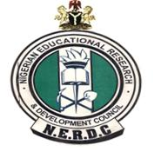
Book Development
We formulate and implement a national policy on book development ...
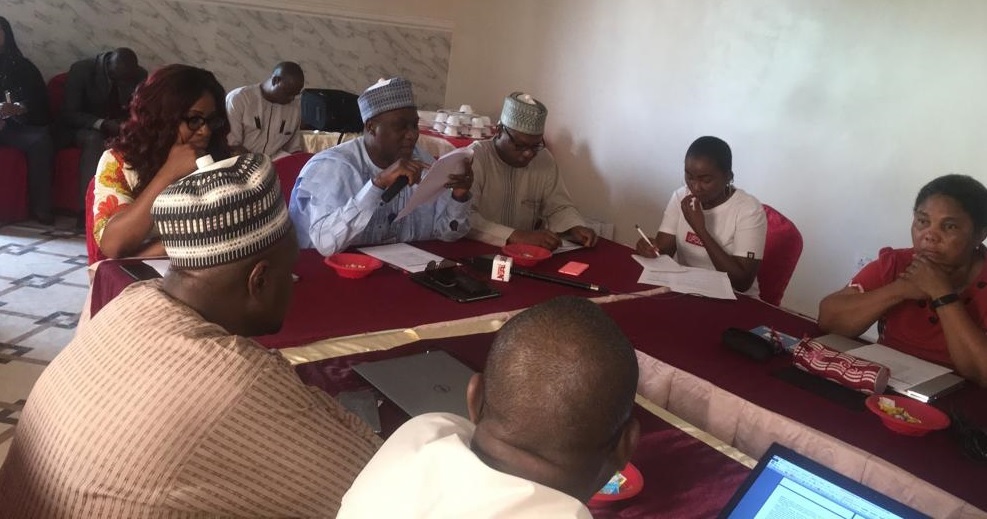
Curriculum Development
We promote the development of curricula at all levels of the educational system ...
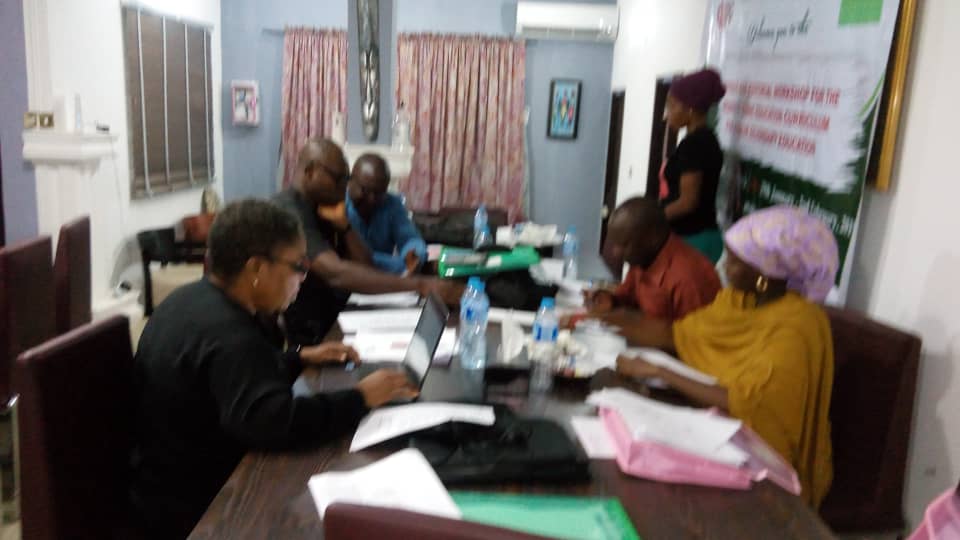
Educational Research
We encourage and coordinate educational research programme carried out in Nigeria ...
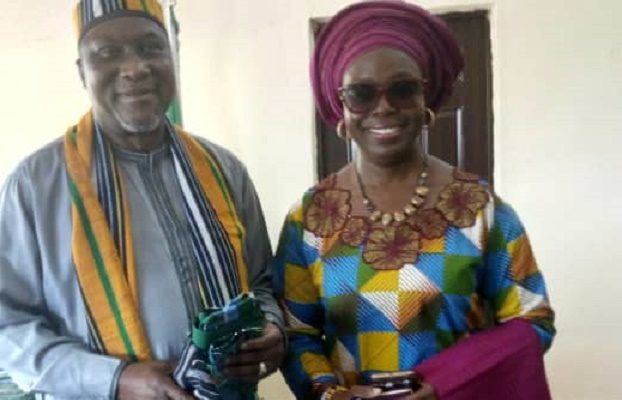
Language Development
We promote and develop Nigerian Language, advise and implement all policies relating to language ...

Library & Informatics
We maintain research and development library to which new educational resources are deposited ...

Special Programme
We maintain relationship with corresponding educational research and development centres in ...
Quick Links
- NERDC in Brief
- Governing Board Members
- Mission Statement
- Management Team
- National Curriculum in brief
- Consultancy
- Emerging Issues in Education
- NERDC Press
- Conference Centres
- Book Development and Assessment (BD&A) MIS
- Research & Dev. eLibrary
- Education Abstract Database
- Download NERDC Strategic Workplan 2016 - 2019
- Download NERDC Activities, Accomplishments and Challenges 2015 - 2019
- Trade and Entrepreneurship Skills
- Frequently Asked Questions (FAQs)
- Photo Gallery
- Manual for the Assessment and Quality Assurance of Instructional and Learning Resources in Nigeria
- Download Natiponal Language Policy (NLP)
- Download Sociolinguistic Survey of Language Diversity and Use in Nigeria
- Download National Reading Framework
- Basic Education Curriculum (BEC)
- Download Teachers Handbook
- Book Development Centre
- Curriculum Development Centre
- Educational Research Centre
- Language Development Centre
- Library and Informatics Centre
- Special Programme Centre

- [email protected]
- +2348139327665
- History of Bells University of Technology
- Administration
- Corporate Affairs Unit
- Undergraduate Study
- FOUNDATION (JUPEB) PROGRAMME
- Postgraduate school
- School Fees
- Admission FAQs
- Food Science and Technology
- Agriculture and Agricultural Technology
- DEPARTMENT OF AGRICULTURAL AND BIO-RESOURCES ENG.
- Department of Biomedical Engineering
- Department of Computer Engineering
- Department of Civil Engineering
- Department of Elect/Elect & Telecomms
- Department of Mechanical Engineering
- Department of Mechatronics Engineering
- COLLEGE OF ENVIRONMENTAL SCIENCES
- COLLEGE OF MANAGEMENT SCIENCES
- COLLEGE OF NATURAL & APPLIED SCIENCES
- Masters Degree Programmes
M.Phil/Ph.D Programmes
- Postgraduate Diploma Programmes
- Academic Resources
- Academic Calendar
- Advancement Centre
- Conferences
- Bells University Journal of Applied Sciences and Environment (BUJASE)
- Bells University of Technology Journal of Management Sciences (BUTJMS)
- Open Educational Repository
- Research and Development
- Student Information Handbook
- Student Life
- UG Student Portal
- PG Student Portal
- Other Payments Portal
- PG Admission Requirement
Candidates for admission into the Higher Degree and Diploma programmes shall normally be graduates of Bells University of Technology, Ota, or any other institutions recognized by the Senate of Bells University of Technology, Ota. Such candidates must, in addition to possessing the basic O’level matriculation requirements of the University, satisfy the general regulations governing postgraduate studies. Admission shall be made by the Postgraduate School on the recommendations by appropriate Departmental and College Postgraduate Committees.
Admission Requirements
Applicants with an academic degree of Master with a minimum weighted average score of 60% or its equivalent from Bells University of Technology, Ota or any other University recognized by Senate of the University may be admitted to the M.Phil/Ph.D Degree programme upon favorable recommendations of the Departmental and College Postgraduate Committees. For such category of applicants an assessment to Ph.D or M.Phil shall be made not later than the first session of full-time registration. Such an assessment shall be made by a panel setup by the College Postgraduate Committee on the recommendation of the relevant Department.
Candidates from other Universities and Masters Degree holders from Bells University of Technology, Ota with less than 60% weighted average can only be admitted into M.Phil programme, and shall be required to pass a PH.D qualifying examination before proceeding to full Ph.D programme. For such candidates, the Department shall specify minimum 10-unit course work per session. No such candidate shall present a pre-data seminar until having passed all prescribed course each of which the candidate must take and pass 50% or higher grade.
A department may specify a minimum weighted average score that such candidates must achieve before conversion into Ph.D programme, provided that such benchmark has been approved by the Postgraduate School Board on the recommendation of the Department through the College Postgraduate Committee. Courses to be taken by a candidate in this regard shall be presented to and approved by the College Postgraduate Committee.
Courses for M.Phil/Ph.D:
Courses for M.Phil/Ph.D would be determined by each Department.
All M.Phil/Ph.D programmes shall normally run for a minimum of six semesters.
College of Engineering
Ph.D. Electrical /Electronic Engineering Admission Requirements: Candidates must possess a Masters degree from Bells University of Technology, or any other approved University in relevant discipline, with a weighted average of 60% and above; M.Phil pass degree from Bells University or any other approved University. Ph.D. Mechanical Engineering Admission Requirements: Candidates must possess a Masters degree from Bells University of Technology, or any other approved University in relevant discipline, with a weighted average of 60% and above M.Phil. pass degree from Bells University of Technology, or any other approved University.
College of Environmental Sciences
Ph.D Architecture Admission Requirements: A Masters degree by course work in Architecture or any other relevant field (Housing, Architectural Science, Landscape Architecture, Urban Design etc.) with a weighted score not lower than 60% or CGPA of 3.5 and thesis score not lower than 60% or An M.Phil degree in Architecture; candidates with M.Phil, M. Arch., M.E.D or M.Sc. (Arch) professional degree or equivalent from a recognized University with 60% overall score. Candidates must present a research proposal along with the application form for evaluation. A candidate with M.Phil. degree will be allowed to transfer to Ph.D. if he/she fulfils the following requirements: Completes all course work with a CGPA of not less than 3.50 in the programme; Submits to the Postgraduate School, a research plan considered suitable for pursuing a Ph.D degree in Architecture. Ph.D Building Services Admission Requirements: A Masters degree from Bells University of Technology, or any other approved University in relevant discipline, with a weighted average of 60% and above M.Phil. pass degree from Bells University of Technology, or any other approved University.The Ph.D. Building Services programme is offered as 100% research programme.Candidates will be required to solve industry relevant problems by carrying out original research work. Ph.D Estate Management Admission Requirements: An M.Tech degree of Bells University of Technology, Ota, in Estate Management or equivalent degree from any other approved University with an overall CGPA of 3.5. Ph.D Urban and Regional Planning Admission Requirements: An M.Tech degree of Bells University of Technology, Ota, in Urban and Regional Planning or equivalent degree from any other approved University with an overall CGPA of 3.5.
College of Food, Agricultural Science and Technology
M.Sc Food Science and Technology Admission Requirements: Candidates must satisfy the O’ Level requirements for matriculation into first degree programmes of the University i.e. Five (5) Credit passes at not more than two sittings including English Language and Mathematics. Candidates must have a Bachelors degree from Bells University of Technology, or any other approved University, with a minimum of Second Class lower division in relevant fields. Candidates with a Third class degree or HND plus University PGD in relevant subject may also be considered for admission.
College of Management Sciences
Ph.D. Project Management Admission Requirements: Candidates must possess a Masters degree from Bells University of Technology or any other approved University with a Weighted Average of not less than 60% or an M.Phil. in Engineering, Environmental Sciences, Management, Project Management and Construction Management Technology from a recognized University. Ph.D. Accounting Admission Requirements: Candidates must possess a Masters degree from Bells University of Technology or any other approved university with a weighted average of not less than 60% or an M.Phil. in Accounting from a recognized university. Ph.D. Economics Admission Requirements: Candidates must possess a Masters degree from Bells University of Technology or any other approved university with a weighted average of not less than 60% or an M.Phil. in Economics from a recognized university. College of Natural and Applied Sciences Ph.D. Biotechnology Admission Requirements: A Masters degree in the field of Biological Sciences with a weighted average not lower than 60%. Candidates with an M.Phil. Degree in relevant field will also be considered for admission. Candidates with M.Phil/Ph.D. grade masters result will be requested to write Ph.D. conversion examinations. Candidates with M.Sc. certificate with M.Phil/Ph.D. grade will be requested to take some courses before proceeding. Ph.D Microbiology Admission Requirements: A Masters degree in the field of Biological Sciences with a weighted average not lower than 60%. Candidates with an M.Phil. Degree in relevant field will also be considered for admission. Candidates with M.Phil/Ph.D. grade masters result will be requested to write Ph.D. conversion examinations. Candidates with M.Sc. certificate with M.Phil/Ph.D. grade will be requested to take some courses before proceeding. Ph.D Computer Science Admission Requirements: A Masters degree in the field of Computer Sciences with a weighted average not lower than 60%. Candidates with an M.Phil. Degree in relevant field will also be considered for admission. Candidates with M.Phil/Ph.D. grade masters result will be requested to write Ph.D. conversion examinations. Candidates with M.Sc. certificate with M.Phil/Ph.D. grade will be requested to take some courses before proceeding. Ph.D Biochemistry Admission Requirements: A Masters degree in the field of Biology with a weighted average not lower than 60%. Candidates with an M.Phil. Degree in relevant field will also be considered for admission. Candidates with M.Phil/Ph.D. grade masters result will be requested to write Ph.D. conversion examinations. Candidates with M.Sc. certificate with M.Phil/Ph.D. grade will be requested to take some courses before proceeding. Industrial Chemistry Admission Requirements: A Masters degree in the field of Industrial Chemistry with a weighted average not lower than 60%. Candidates with an M.Phil. Degree in relevant field will also be considered for admission. Candidates with M.Phil/Ph.D. grade masters result will be requested to write Ph.D. conversion examinations. Candidates with M.Sc. certificate with M.Phil/Ph.D. grade will be requested to take some courses before proceeding. Ph.D Physics Admission Requirements: A Masters degree in the field of Physics with a weighted average not lower than 60%. Candidates with an M.Phil. Degree in relevant field will also be considered for admission. Candidates with M.Phil/Ph.D. grade masters result will be requested to write Ph.D. conversion examinations. Candidates with M.Sc. certificate with M.Phil/Ph.D. grade will be requested to take some courses before proceeding.
The Postgraduate School,
Bells University of Technology Ota,
Km. 8 Idiroko Road, Benja Village,
P.M.B. 1015, Ota, Ogun State, Nigeria.
Postgraduate School Hotlines:
08115477239; 0813-439-4566; 0818-827-1625
Theses and Dissertations
Permanent uri for this community, collections of this community, results per page, sort options.
- Faculty of Arts
- Faculty of Basic Medical Sciences
- Faculty of Clinical Sciences
- Faculty of Dental Sciences
- Faculty of Education
- Faculty of Engineering
- Faculty of Environmental Sciences
- Faculty of Law
- Faculty of Management Sciences
- Faculty of Pharmacy
- 1 (current)

43 Top EdTech Startups & Companies (Nigeria)

A digital infrastructure for K-12 Schools in Africa, automating learning and administration for over 1000 schools in 6 countries. Based out of Lagos, Lagos, Nigeria
Twitter | Facebook | Linkedin
Learn more about their finances on Crunchbase
Gradely is using analytics and data-driven recommendations to help schools and parents intervene in real-time to children’s learning gaps. Based out of Lagos, Lagos, Nigeria
Prepclass is an academic solutions provider offering a customized learning program for each and every student. Based out of Lagos, Lagos, Nigeria
DavtonLearn
DavtonLearn is powering affordable E-learning infrastructure for Nigeria & Africa. Based out of Ikeja, Lagos, Nigeria
Schoolinka is a leveraging digital learning and physical classes to develop the capacity of educators to drive learning in the classrooms. Based out of Lagos, Lagos, Nigeria
Reevyse is an online marketplace where you can book meetings with Africa's most innovative minds Based out of Lagos, Lagos, Nigeria
Africa’s first online education platform where individuals and organisations gain in-demand global skills. Based out of Lagos, Lagos, Nigeria
Pass.ng is an e-testing platform that provides students with series of Mock test in preparation for major exams in Nigeria. Based out of Lagos, Lagos, Nigeria
Ustacky is an Ed-tech firm that specializes in coding, industry-relevant programming skills and software development courses. Based out of Lagos, Lagos, Nigeria
Education TV Nigeria
Edu TV Nigeria, Online TV Platform, EduTech Based out of Ile-ife, Osun, Nigeria
SabiTeach is an online education company Based out of Lagos, Lagos, Nigeria
Schoola Apps
A gamified alternative learning platform for K12 schools offering a fun way to learn and uses AI for customized content generation. Based out of Kaduna, Kaduna, Nigeria
Paramount Trading Education
Paramount Trading Education helps people develop skills for the future of money through trading and investing education. Based out of Lekki, Lagos, Nigeria
Talemia is an Edtech solution supporting early stage African founders to launch their startups faster than they can on their own Based out of Lagos, Lagos, Nigeria
Making education more open and accessible with fun for Africans in their mother tongue and preferred language. Based out of Lagos, Lagos, Nigeria
Purpose-built platform for organising alumni & "crowd-resourcing" education in Africa transparently and sustainably Based out of Lagos, Lagos, Nigeria
Saas, Cloud+Native Apps, solution development Based out of Abeokuta, Ogun, Nigeria
Pledre creates a better educational system by leveraging technology to augment the need for expensive physical infrastructure in school. Based out of Lagos, Lagos, Nigeria
West Africa Vocational Education
WAVE (West Africa Vocational Education) is a social enterprise with a mission to increase income for unemployed youth in West Africa. Based out of Yaba, Lagos, Nigeria
A fun way to review learned material for longer retention. Based out of Ikeja, Lagos, Nigeria
Clique helps to connect tutors with students virtually to deliver effective lessons. Based out of Abuja, Federal Capital Territory, Nigeria
SchoolsFocus.net
Simplifying School Management in Africa through technology. Democratizing and Accelerating Digital Penetration to the grassroots. Based out of Lagos, Lagos, Nigeria
Digital Technology Company that offer Start-up Tech, Agrictech, Edutech and Fintech Solutions to Africans Based out of Lekki, Lagos, Nigeria
W3tutor is on the quest of making millions of people tech efficient across Africa. Based out of Awka, Anambra, Nigeria
Classes.ng is a search and registration engine for Centers and Tutors, where students can register for the best Classes around them. Based out of Lagos, Lagos, Nigeria
Edukero is an EdTech company that specializes in training and job placement. Based out of Umuahia, Abia, Nigeria
ML Academy Limited
Online learning platform based in West Africa that aims to bridge the educational divide Based out of Abuja, Federal Capital Territory, Nigeria
Young Empowered Programmers
Young Empowered Programmers is an edutech company that teaches computer programs for kids and teens. Based out of Lagos, Lagos, Nigeria
Full-time online school for all levels of primary and secondary students across the world Based out of Lagos, Lagos, Nigeria
Zacrac Learning
Zacrac learning is a data science and analytics training platform. Based out of Akure, Ondo, Nigeria
EduXtra is a tutoring platform that specializes in teaching children, teenagers, young adults, anyone who wants to learn how to code. Based out of Port Harcourt, Rivers, Nigeria
Opticsms is an Enterprise Resource Planning (ERP) model on Saas that automates school processes and records from enrolment to graduation. Based out of Kaduna, Kaduna, Nigeria
TeachersAroundMe
TeachersAroundMe.com helps you source, screen and connects you with professional Teachers, Linguists, Counselors and Skill Trainers near you Based out of Lagos, Lagos, Nigeria
Research Shelf
Research Shelf is an online platform that connects students with lecturers, and other students for a better learning & research experience. Based out of Abuja, Federal Capital Territory, Nigeria
Stack Arena
StackArena is a community for developers Based out of Yaba, Lagos, Nigeria
Wakanow Media Solutions
Wakanow Media Solutions is an interactive advertising platform. Based out of Lagos, Lagos, Nigeria
TechBridge Consulting
TechBridge Consulting is an EdTech firm that offers online & offline courses on coding, python, data science, minecraft, robotics, and more. Based out of Ikeja, Lagos, Nigeria
MOLI Academy
MOLI Academy is a MOOC platform dedicated to entrepreneurial education with a focus on promoting vocational skills learning. Based out of Abuja, Federal Capital Territory, Nigeria
Mentorships.ng
An Online Career Mentorship platform connecting undergraduates and young professionals with industry Professionals in Tech and Business Based out of Otta, Lagos, Nigeria
Doksta is a test preparation resource for African medical students. Based out of Lagos, Lagos, Nigeria
Mavis Education
Mavis Education is an ed-tech company that provides classroom and non-classroom learning materials such as talking books and digital pen. Based out of Abuja, Federal Capital Territory, Nigeria
Dolessons helps students find and hire the services of qualified tutors to master any subjects and excel in exams. Based out of Ikeja, Lagos, Nigeria
AMA Creatives
AMA Creatives partners with companies to create courses to improve employee skills and overall behavioral change. Based out of Ikeja, Lagos, Nigeria
Stay up to date with EdTech news.
Recent stories.

5 Top EdTech Startups & Companies (Gdansk)
Gdansk is home to a range of established and new EdTech companies. With a strong foundation & a maturing regulatory space Gdansk offers a wide range of opportunities for EdTech companies. This list aims to showcase some of the top EdTech companies and startups in Gdansk focusing on companies with great track records, innovative products or huge future potential.

5 Top EdTech Startups & Companies (Piemonte)
Piemonte is home to a range of established and new EdTech companies. With a strong foundation & a maturing regulatory space Piemonte offers a wide range of opportunities for EdTech companies. This list aims to showcase some of the top EdTech companies and startups in Piemonte focusing on companies with great track records, innovative products or huge future potential.

5 Top EdTech Startups & Companies (Brasil)
Brasil is home to a range of established and new EdTech companies. With a strong foundation & a maturing regulatory space Brasil offers a wide range of opportunities for EdTech companies. This list aims to showcase some of the top EdTech companies and startups in Brasil focusing on companies with great track records, innovative products or huge future potential.

IMAGES
VIDEO
COMMENTS
Bachelor Degree in Educational Technology of Usmanu Danfodiyo University, Sokoto or other recognised institutions with a minimum of Second Class Lower division. Master Degree in Educational Technology with a GPA of not less than 4.0 on a 5 point scale or 3.00 on a 4.00 point scale. In addition to i-iii above, a candidate must satisfy the ...
To study in Nigeria, you'll need to provide proof of your English language proficiency. Some certificates accepted by universities in Nigeria may include: PTE Academic. TOEFL iBT. IELTS Academic. C1 Advanced or C2 Proficiency. Still, you should always check your university's website to be sure what the exact language requirements are.
M.Ed. Educational Technology. The aim of this programme is to assist students to acquire the fundamental knowledge and skills needed for one of the following: (A) the use of diverse communication media for the packaging and delivery of instructional content for effective learning outcomes; (B) the analysis, design, development, implementation ...
TThe following shall qualify for admission into the Doctor of Philosophy degree programme in Educational Technology: Graduates of the Ahmadu Bello University, Zaria or other recognized institutions who have obtained a Masters Degree in Educational Technology with a GPA of not less than 4.0 on a 5 point scale or not less than 3.0 on a 4 point scale.
Abstract. Today, more than ever, the role of educational technology in teaching and learning is of great importance because of the use of information and communication technology. With the help of various applications for distance education, the internet, teachers and students themselves, they see the advantage technology in education. Aware of this, the Federal Government in its statement on ...
The minimum duration of M. ED in Educational Admin & Planning is three semesters and a maximum of six semesters. Students who complete the coursework carry out a research as their masters' thesis, and graduate from the program by successfully defending it. A Minimum of 15 Courses (consisting of all the 13 Compulsory courses and 2 Elective ...
Nigeria is a developing country in the western part of Africa with a population of over 200 million people, Education Technology uses in Nigeria includes the use of hardware and software to ...
1. Finance. I had a job to fund my tuition, study and research. If you do not have a scholarship, fellowship, stipend or grant — all of which are hard to come by at most Nigerian universities ...
The National Open University of Nigeria (NOUN) stands as a beacon of accessible and high-quality education, offering a plethora of postgraduate programs tailored to diverse academic interests and career goals. ... PhD Educational Technology: 900: 3: 10: C: EDU921: Advanced Educational Research Methods: School of Postgraduate: P100303: PhD ...
PhD in Educational Technology: Program Language: English : Admission Semester: Spring (April)Winter (December) Start Date: January Intake: Program Duration: 4 semesters: Fees. ... It is Nigeria's largest tertiary institution in terms of student number and is popularly referred to as NOUN. NOUN aims to develop in five major areas. They are to:
Education is the bedrock of development in any country. Nigeria is a developing country with a well-established education sector. Its budgetary allocation to education in 2020 was 6.7% and is usually within a yearly percentage that is well below the estimated allocation for Education by the United Nations Educational Scientific and Cultural Organization UNESCO (27%).
Nigeria with over 120 universities, yet the country is one of the top 10 nations that sends students abroad seeking admission for higher education. Consequently, for Nigeria and its economic challenges, this large number of students will lead to a huge drain on the economy in term of capital flight (tuition fees, medical insurance ...
NIGERIAN EDUCATIONAL RESEARCH AND DEVELOPMENT COUNCIL (NERDC) The Think-Tank of Nigerian Education and Development +2347081361390 | +2348034889740 | [email protected]. ... Presentation of an Award from the Nigeria National Association of the Deaf to Prof. Ismail Junaidu, the Executive Secretary NERDC held on the 3rd April, 2024. ...
EDU332: Educational Technology is a first semester year one, two credit and 300 level core course. It will be available for all students offering undergraduate education programmes in the ... Historical Development of Educational Technology in Nigeria The Communication Process Definition of Terms Systems Approach Factors or Methods, Media ...
Edutech entrepreneurs in Nigeria are leveraging the country's large population and determination for better learning opportunities to develop commercial educational technology solutions. We've found 11 companies that you should be following: Showcase Your Digital Solution in ICTworks! Bridge International Academies operates high-quality low ...
Admission Requirements: A Masters degree from Bells University of Technology, or any other approved University in relevant discipline, with a weighted average of 60% and above. M.Phil. pass degree from Bells University of Technology, or any other approved University.The Ph.D. Building Services programme is offered as 100% research programme ...
Address. University of Lagos Library, University of Lagos, P.M.B 1012, Akoka, Lagos . University of Lagos Library © 2023, All Right Reserved. Cookie settings; Send ...
43 Top EdTech Startups & Companies (Nigeria) Commercial Real Estate companies have been making some huge strides over the last year with innovations driven by both established players and startups entering the scene. With an impressive 19.9% CAGR and a predicted value of $126.19 billion in 2022 it is a huge industry ripe for growth.
Need for Nigeria's education system to adopt technology. By KEHINDE ONI. The exchange of knowledge from one generation to the other dates back as far as 1801, when large pieces of slate were ...
As a full-featured school management software that automates all K-12 school processes to enhance education, EDVES has raised a total of$766,500 in seed funding. 7. Sam Immanuel-CEO, Semicolon. Sam Immanuel is the CEO of Semicolon Africa, a tech-enabled educational startup founded in 2018 and based in Lagos, Nigeria.